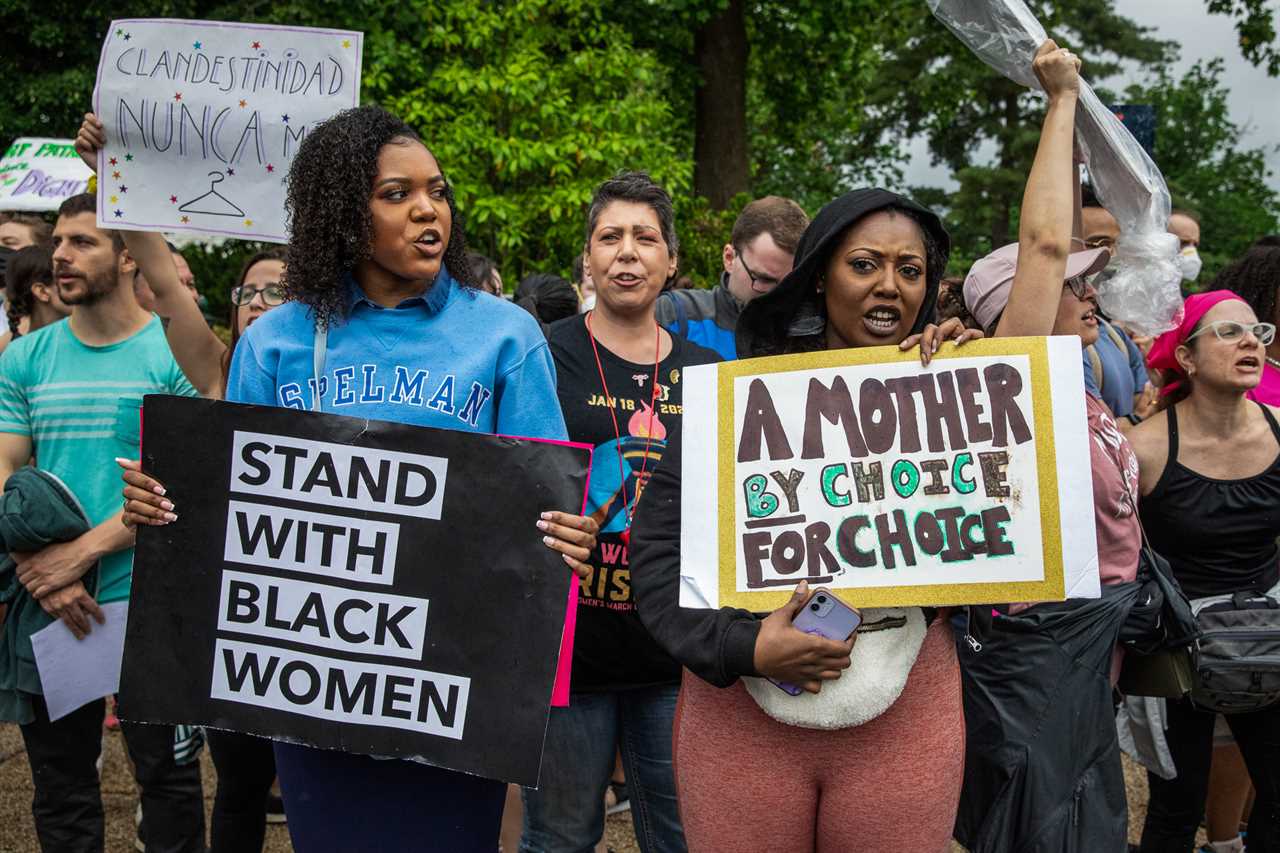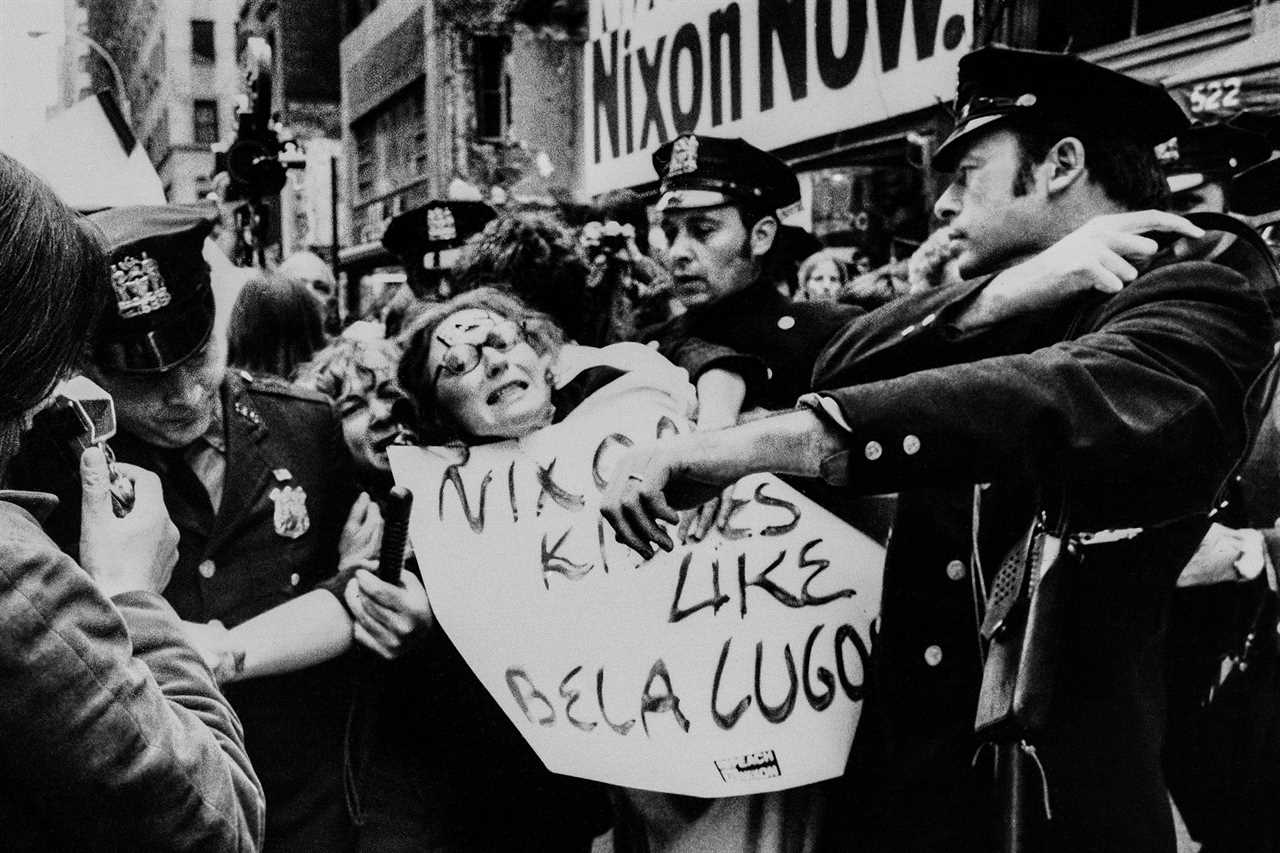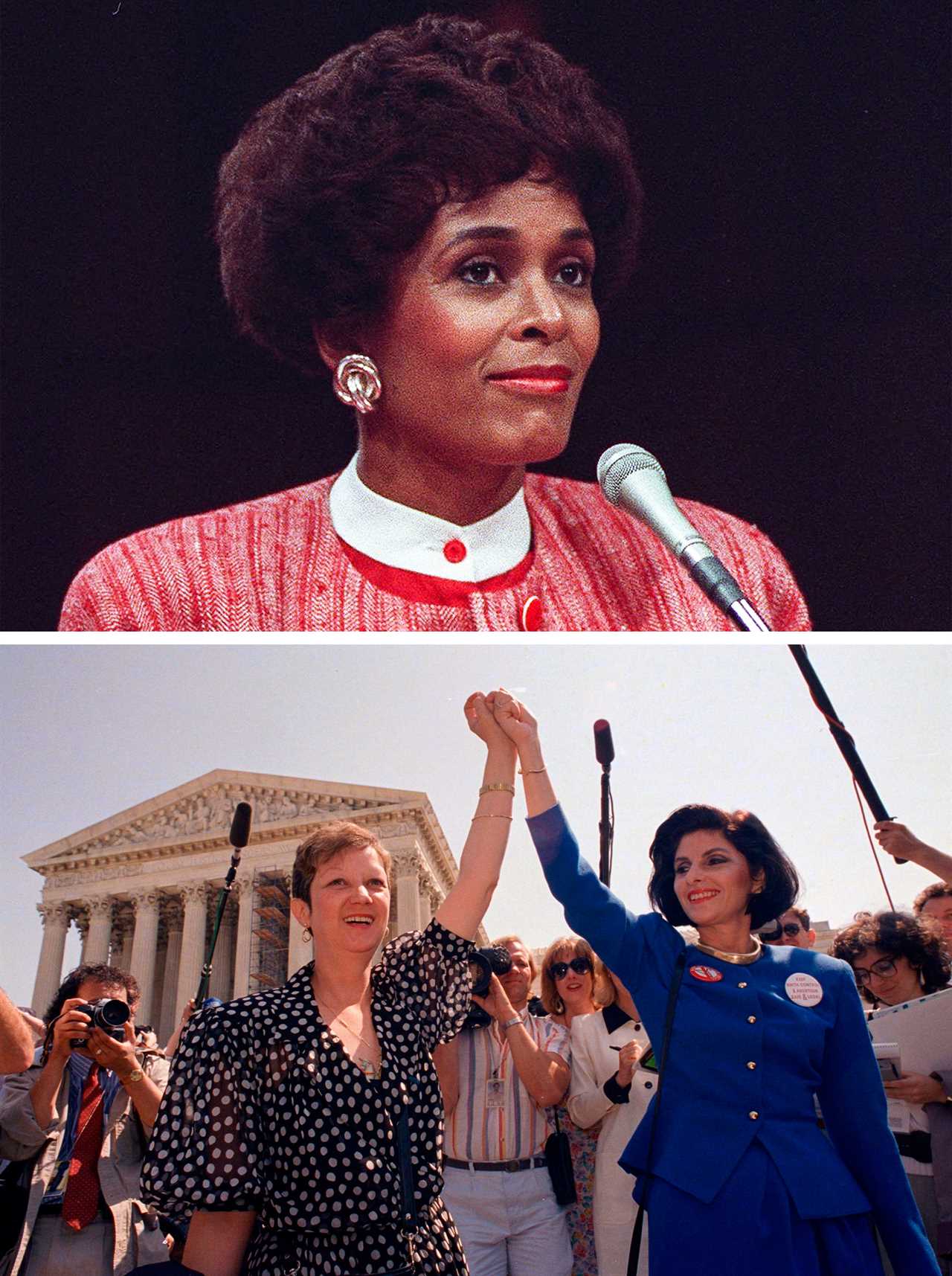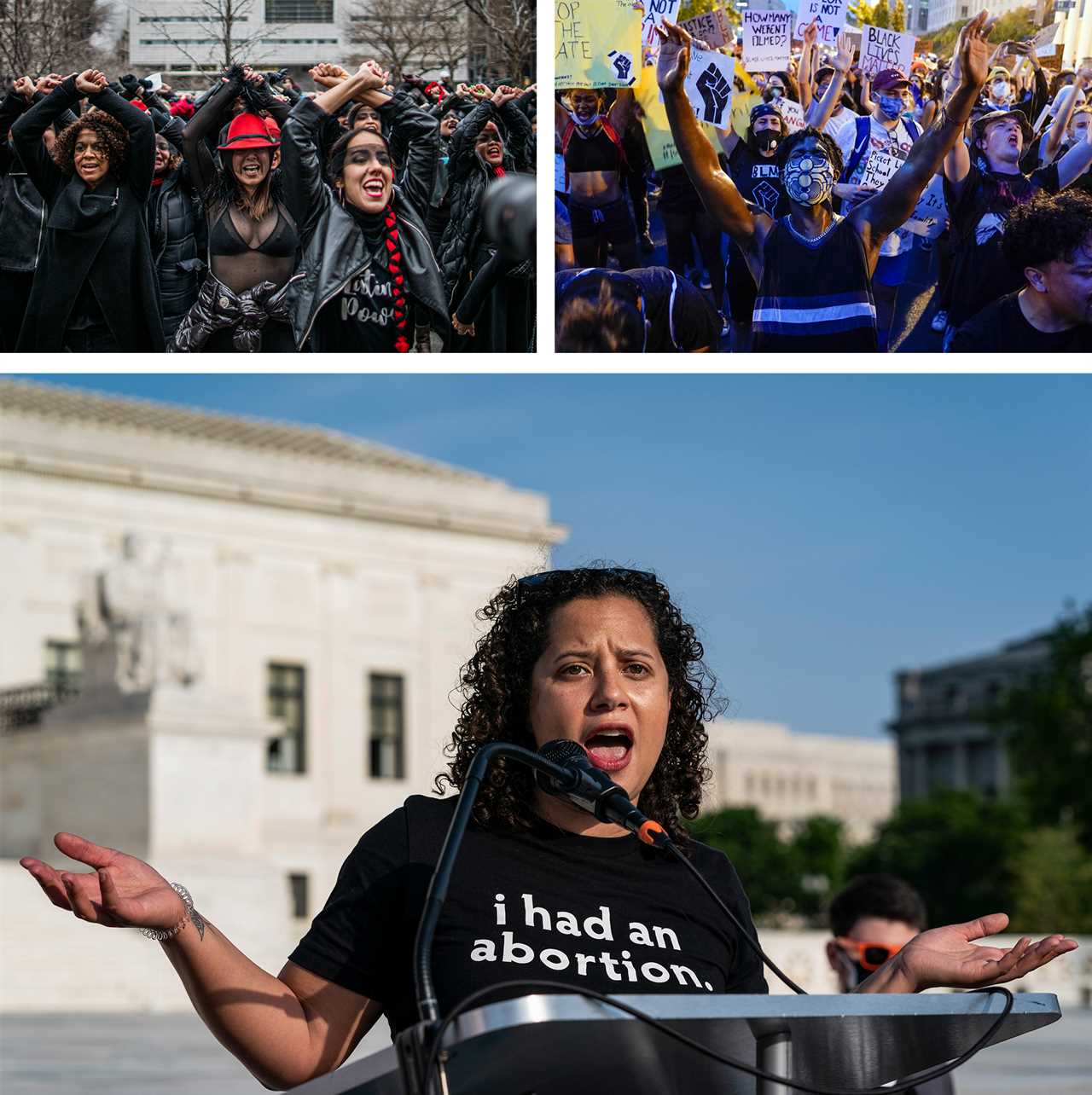
When I was in my 20s, I had an abortion. Actually, I had more than one. It’s taken me more than a month even to write those sentences — a single, simple truth I had to break into two parts to make palatable. The impending official demise of Roe v. Wade has forced me to look at the depth of my reticence about this. People have lauded me over the years for allegedly brave things I’ve said in columns, for putting myself “out there,” but I’d never shared this. I always told myself it was because abortion wasn’t relevant to racial justice, which is the bulk of what I write about. Yet I’ve written about plenty of personal matters that are ostensibly nonracial — depression, money, crises with my dogs, my unfolding struggle with alopecia. All these things at some point have racial implications, as most things in America do. Those things certainly include abortion rights. But I left it alone.
I’m willing to admit only now, as we stand on the brink of Roe’s total collapse, the two main reasons for my avoidance. One, the stories behind my abortion experience — i.e., bad relationships — were nothing I was burning to tell. Two, and perhaps more important, I was never compelled to write about abortion because, even up through this year, I refused to believe it was in any real danger of going away. It just didn’t compute. In the ’60s and early ’70s, the feminist movement fought hard to secure the constitutional guarantee of abortion rights. After 1973 the notion of professional, middle-class women going back to coat hangers, closeted medical procedures and trips out of the country seemed unthinkable, downright ridiculous. It would be like Black people after the ’60s agreeing to live under explicit Jim Crow laws again.
Admittedly, I thought of abortion rights as being even more ironclad than civil rights because it had been advanced by so many white women, and therefore had to be taken seriously by the political establishment. True, it had taken a very long time to get to Roe v. Wade — too long. But once there, I assumed the fight was done, and could not be undone. In the ’80s and ’90s I was grateful to be a beneficiary of a struggle that may not have been fought with me in mind, but that shaped the trajectory of my life. Exercising such a right felt like democracy at its most functional.

Now, with functional democracy at a nadir, the likely scuttling of Roe v. Wade, though shocking to many, also feels like par for the course. Just one more right of the masses getting picked off state by state while the Supreme Court withdraws from the business of protecting it altogether. This particular picking off is not new. But what’s more remarkable to me is that white women who once saw Roe as core to second-wave feminism seem not to be putting up much of a fight. There has been pushback and protests, of course, every step of the way. But overall it’s been a staving off of disaster, not a proactive campaign to cement and grow Roe’s legacy. And in the last decade the pushback has grown increasingly academic — righteous condemnation and legal analyses on talk shows and opinion forums. What’s been missing, especially as the anti-abortionists have zeroed in their goal of overturning Roe, are visible protests or a larger cultural movement on the scale of #MeToo or Black Lives Matter. Instead, there has been a collective bracing amongst abortion advocates for the inevitable, with lots of sober speculation about how life will be post-Roe.
The implications of Roe’s end are huge, much bigger than I ever wanted to think about. The right to decide whether to have children or not is, if not exactly a civil right, as essential to our daily lives and to a kind of individual agency and equality that I think of as uniquely American. The right to abortion involves us all, including women like me — especially women like me — who are not white and who are well past reproductive age, yet who recognize oppression in all its forms and feel its reach.
Faye Wattleton, past president of Planned Parenthood and the organization’s first Black president, calls the right to abortion not simply a right of all women, or all Black women, or even all Americans, but a human right. “However you frame it, this is about people’s individual right to control their bodies,” she says. “There are no two sides to it. A person has the right or they don’t.”
The fundamental right to abortion should be an absolute, with no gray areas. But it also has subtleties that are rarely discussed. While abortion is often framed by both sides as something a woman does only in physical or emotional crisis — the last, worst option — that is often not true. Abortion is something you do to avoid crisis. (Like being chained for life to an ill-suited partner, struggling with single parenthood, or both.) I know this from experience. It is acting in real time on your own behalf, important for all women but especially for Black women who deal with ongoing crises of all kinds, and who hardly need more. Choosing abortion to ease our lives is the most quotidian aspect of abortion — and the most crucial. Yet in public discussions it’s downplayed, presumably because it makes us seem selfish when there’s this not-so-subtle pressure to appear remorseful, or somehow damaged by the experience.
That pressure feels greater for Black women, who have always been under greater moral scrutiny — and who have much higher rates of abortion, thanks to a whole host of historical disparities. It’s telling that the abortion stories recently shared by several Black congresswomen who are staunch reproductive rights advocates are nothing short of horrific: Cori Bush (D-Mo.) was a 17-year-old rape victim; Barbara Lee (D-Calif.) was a 16-year-old in the pre-Roe era whose mother helped her get a back-alley abortion that Lee described as nightmarish. Understandably, none of the women used words like “glad” or “relieved” or “unburdened.” But with my own, trauma-free abortions, I felt all those things.

Vanishing abortion rights parallel what’s happening to affirmative action: a policy that what was once seen as a pillar of the racial justice movement in the ’60s and ’70s has diminished over the years as the Supreme Court has retreated from its role of ensuring for the majority equal access to opportunities that a fiercely committed minority of Americans would rather see denied. Another parallel: Affirmative action’s mostly Black supporters, like the mostly white supporters of Roe, have had a hell of a time keeping up the fight to save it, to say nothing of building on its legacy. These days I rarely hear Black people talking about saving affirmative action. But there is at least a new, encompassing racial justice movement — Black Lives Matter — that draws on virtually every Black justice campaign that has come before, including affirmative action. It has not been lost so much as reconstituted.
Does BLM hold lessons for how to reinvigorate opposition to abortion bans? BLM certainly has the capacity to articulate newer demands for Black justice, especially those that focus on gender equality and the health of Black communities as a whole. Black activists have already had a crucial, if little-implemented, role in the abortion fight: They proposed the idea of “reproductive justice” back in the ’90s to broaden abortion rights into a framework that addresses not just reproductive rights, but access to abortion and contraception, and guarantees for the well-being of the children who are actually here. BLM’s political umbrella includes reproductive rights, and it has been in the fray: Last fall, it ran one campaign calling on President Joe Biden to expand the Supreme Court, and more recently ran another to help raise money for a women’s center in Texas.
At this point, Black women — Black people, period — seem well-positioned to carry forward a truly pro-life message, one that values the life of the pregnant person, one with a clear narrative and sense of shared destiny that the mostly white pro-choice movement always lacked. The fact that Black women account for a disproportionate number of abortions makes their leadership even more relevant, and urgent.
Still, even if all Black women took up the mantle, the fight can’t simply be ours. But political power has not belonged to all of us equally. White women have not used their power to truly join forces with women of color and strengthen their own argument that abortion is not just acceptable, but essential.
But the feminist movement seemed to consciously avoid this. That may partly be because it’s insisted, per Roe, that abortion is wholly private. That’s true, but it’s a view that’s privileged in its narrowness, not to mention politically limiting. White women have also avoided joining forces with Black women because, I think, women affirming control of their own sexuality in any way is an ancient but powerful taboo, one that still holds sway across color lines. White abortion supporters, Wattleton says, badly missed the opportunity early on to unify women, and all Americans, to cast abortion rights as a common national interest, rather than fight battles in individual states. We should learn from history. Many white people in the 1850s thought that such a piecemeal approach could work with slavery. But in the run-up to the Civil War it became increasingly clear that slavery was a problem of human rights that went to the heart of what America was about. It was never about what the states could do or not do, it was about what the nation was. We are at that moment again.
There was a recent opportunity to make the common-interest case. As BLM boosted Black justice movements, the feminist movement was similarly reinvigorated by #MeToo back in 2017. But maintaining abortion rights was simply not part of that campaign. The great takeaway of #MeToo is that it is women’s stories, similar but collectively powerful, that turned a hashtag created by a Black woman into a full-on movement for all. In 2020, the racial justice movement that BLM (also started by Black women) had been building for years with stories and images of police-abuse victims was suddenly personalized, and universalized, by a barbaric eight-and-half-minute story caught on video and viewed by the world. Though of course the tragedy was unplanned, its powerful effect on the public imagination holds myriad lessons, perhaps even a road map to action.

The fight for abortion rights never had such a dramatic moment as George Floyd’s murder, but the point is that it never had a face. Because abortion was defined as private, and therefore anonymous, but also because so many of the faces of people getting abortions were Black or brown. Renee Bracey Sherman, a 36-year-old abortion rights activist who elevates the narratives of Black and other women through her organization “We Testify,” believes that’s the reason why for so long white women couldn’t, or wouldn’t, fully represent or identify with women of color. In other words, the chief problem from the beginning has been white supremacy. “Abortion has always been threaded with white anxiety,” says Sherman. “There is an idea that anti-abortionism is pushed by white men — true and not true. White women are always falling into patriarchy, so they’ve been part of it.”
Before she became an activist, Sherman says she wrestled with an ingrained reluctance to talk about the abortion she had at the age of 19. Much of that reluctance was connected to color. “I wanted to fight the narrative of, ‘Black girl gets pregnant, drops out of school, boyfriend in prison, etc.,’” she says. It wasn’t until she began doing abortion rights work that she began to see the stories, ordinary quotidian and otherwise, that had been there all along. Her own mother admitted to having had an abortion; so did her cousins. They simply had not talked about it. If all women are inhibited from talking abortion because of the sexuality taboo, Black women are doubly inhibited because of racial stereotypes that paint them not just as careless and promiscuous, but as a drain on societal resources, not part of a legitimate collective by definition. No wonder we keep to ourselves.
Yet Sherman says plenty of Black women have always approved of reproductive rights even if they haven’t been vocal about it, lending what she calls “passive support.” Her mission is to turn that inside out — to make abortion part of Black women’s personal and political liberation that, far from making us feel passive or apologetic, is affirming and empowering. That can be hard when high-profile abortion advocates like Biden or Barack Obama tend to use terms like “pro-choice” and “a woman’s right to choose” — embracing the right, but keeping the act at arm’s length. “Why can’t they say the word?” Sherman asks, with a mix of frustration and disbelief.
Rigid anti-abortionism — and the inherent extremism of that position that helped make other kinds of extremism mainstream — became the GOP’s official party position in 1980. The problem since then has been the lack of a clear counterenergy defining abortion not simply as a private matter people choose to do or not, to talk about or not, but a public good. This is something Black women can certainly advocate for. Wattleton says the vacuum is a lack of imagination that’s been fueled, ironically, by the success abortion access has had the last 50 years. “Most of us don’t know enough people who’ve been denied an abortion to convince us that abortion rights is a problem,” she says. “It’s kind of like Covid — a million people around you have died, but you don’t necessarily see that.”
That was my problem: I was aware, but I didn’t see. Nor did I tell. Nor did I fight. So it’s worth repeating, in one sentence this time: I have had abortions. It’s a statement that’s a word that’s also a whole mundane story, one among thousands that have remained consciously, conspicuously private and apart, relying on a kind of cover that we never really had. But at this very late hour, I don’t think it’s too late to break that silence, or to expect a new course — or to continue fighting. And fight we must, all of us, notably Black women, for that fundamental right. Wattleton reminds me that the looming Supreme Court decision is no apocalypse handed down from on high, it is a result of all that we the people have done — and have not done. It is what we have let happen. “None of this,” Wattleton says of the anticipated reversal of Roe, “is an act of God.”
----------------------------------------
By: Erin Aubry Kaplan
Title: Opinion | I’m Black. I Thought White Feminism Would Keep Abortion Safe.
Sourced From: www.politico.com/news/magazine/2022/05/27/abortion-feminism-essay-white-black-00032987
Published Date: Fri, 27 May 2022 03:30:00 EST






